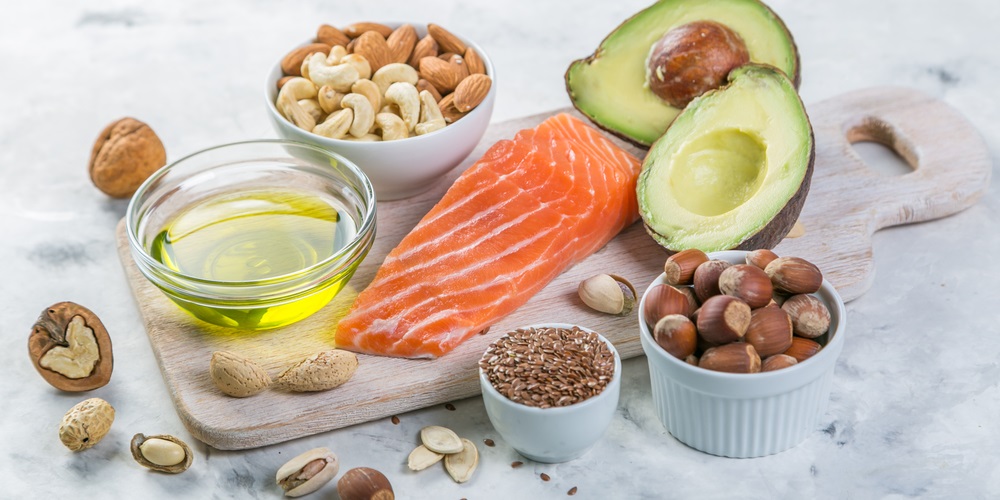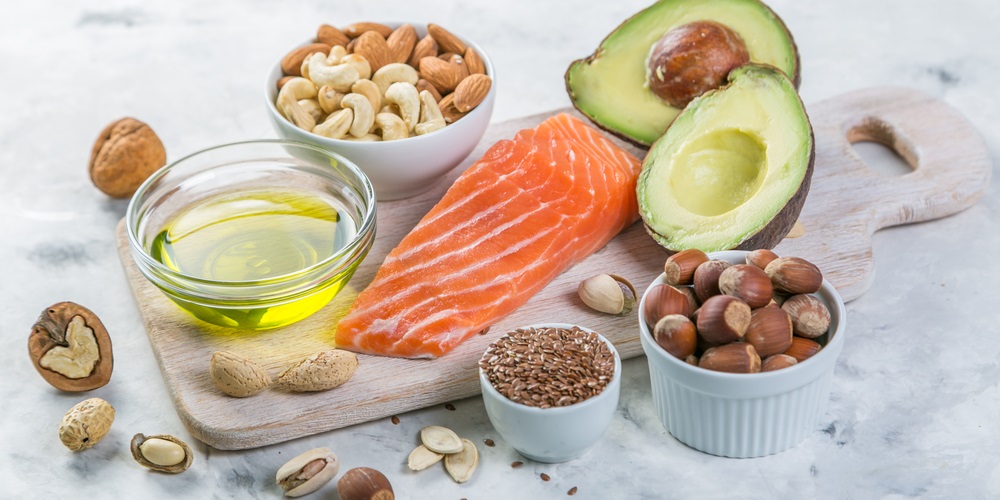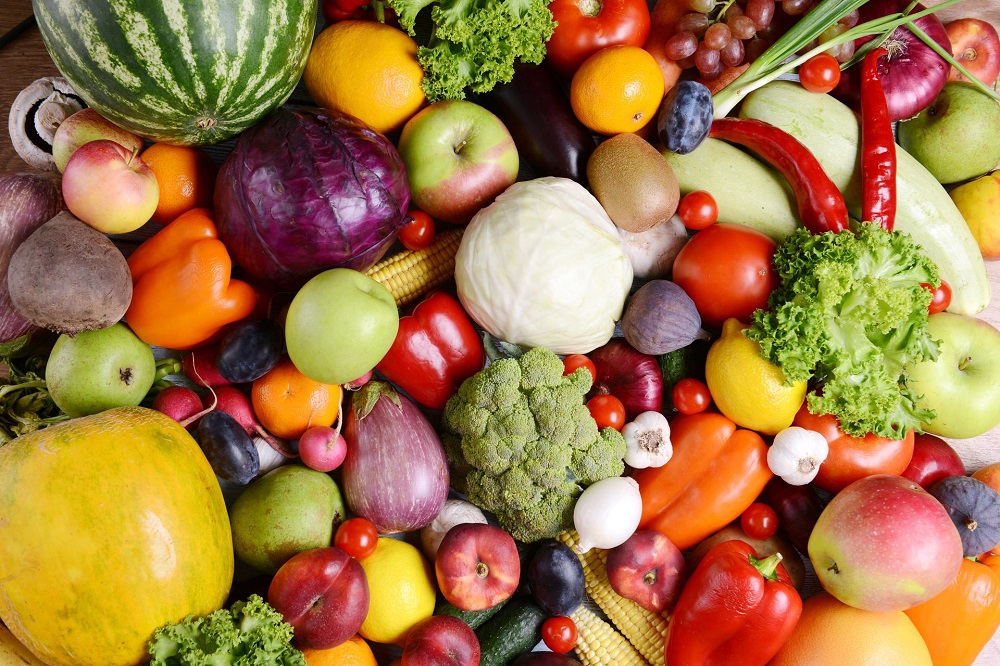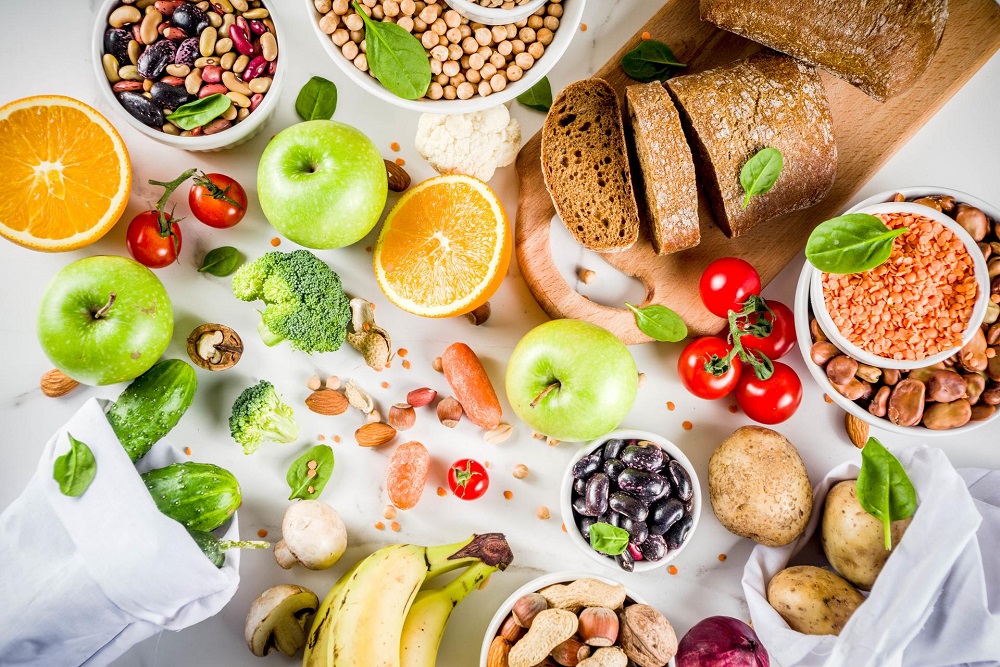Topics
Functional foods are foods that are potentially beneficial to your health beyond basic nutrition. These foods promote optimal health and help reduce the risk of diseases.

Below are six types and sources of functional foods and their recommended serving sizes.
1. Omega-3 Fatty Acids
Omega-3 fatty acids are essential fatty acids that have been found to be able to significantly reduce the risk for sudden death caused by irregular heartbeat and other causes in patients with known heart disease. Omega-3 fatty acids are important for heart health and brain health.
The two most crucial omega-3 fatty acids are Eicosapentaenoic Acid (EPA) and Docosahexaenoic Acid (DHA).
Recommendation: 2 - 4g per day for people with hypertriglyceridemia
Omega-3 fatty acids sources- Walnuts (¼ cup = 2.3g)
- Chia seeds (1 tbsp = 1.9g)
- Salmon (75g = 1.9g)
- Mackerel (75g = 1g)
- Canola oil (1 tsp = 0.6g)
2. Fibre and Wholegrain
Fibre promotes gut health and reduces the risk of developing many chronic diseases. The recommended fibre intake is five servings of fruits and vegetables per day.
Recommendation: 25 - 30g fibre per day (7 - 13g soluble fibre)
Fibre (soluble fibre) sources- Vegetables (½ cup = 5g fibre)
- Fruits (1 serving = 4.4g fibre)
- Black beans (½ cup = 15g total fibre, 3.6g soluble fibre)
- Sweet potato (½ cup = 2g total fibre, 1.8g soluble fibre)
- Avocado (½ fruit, 6.5g total fibre, 2.1g soluble fibre)
3. Beta Glucan
Beta glucan is a soluble fibre that forms a gel in the digestive tract. Beta glucan binds to excess cholesterol and cholesterol-like substances within the gut and prevents these from being absorbed by the body.
Recommendation: ≥ 3 g reduces LDL cholesterol up to 5%
Beta glucan sources- Oatmeal (3 tablespoons, raw = 1g)
- Barley (1/2 cup cooked = 3.5g)
- Oat bran powder (2 scoops = 3g)
- Fortified products (1 serving = 0.8g)
4. Soy Protein
Soy protein is protein found in soybean and soy products. Soybean contains zero cholesterol; it is low in saturated fat and is the only plant-sourced food that contains all eight essential amino acids.
Soy protein is a good source of fibre, iron, calcium, zinc, and vitamin Bs.
Recommendation: 25g per day reduces LDL cholesterol up to 4 - 5%
Soy protein sources- Firm tofu (1 large block, 350g = 18g)
- Tempeh (90g = 13g)
- Soymilk (1 cup = 7g)
- Edamame (½ cup = 11g)
5. Nuts
Tree nuts and peanuts are rich in unsaturated fatty acids, nutrients, and other bioactive compounds such as protein, fibre, minerals, tocopherols, phytosterols, and other phenolic compounds.
Recommendation: 150g per week (30g for 5 days per week) lowers cholesterol by an average of 5% and reduce heart disease risk by 37%
Nut sources- Almond
- Brazil nuts
- Cashew nuts
- Walnuts
- Pistachio
- Macadamia
- Peanuts
- Pecan
6. Plant Sterols
Plant sterols are found naturally in plants. They are also known as phytosterols.
Plant sterols are structurally similar to cholesterol in the human body; thus they compete with cholesterol for absorption in the digestive system.
Recommendation: 2 - 3g per day reduces LDL cholesterol up to 10%
Plant sterols sources
- Chickpeas (1 cup = 0.24g)
- Corn oil (2 tbsp = 0.3g)
- Fortified milk (250ml = 0.83g)
Make an appointment at Gleneagles Hospitals
If you have questions about functional foods and how to include them into your daily diet, contact your doctor or the Diet Counselling Centre at your nearest Gleneagles Hospital to receive professional dietary advice from the team of qualified dietitians.
If you would like to make an appointment for health screening, please contact the health screening centre at the Gleneagles Hospital nearest to you.




















